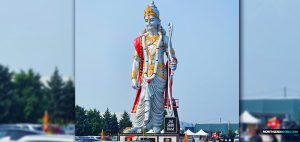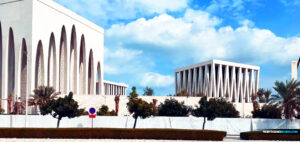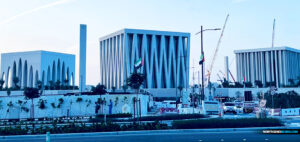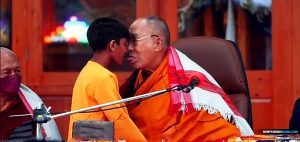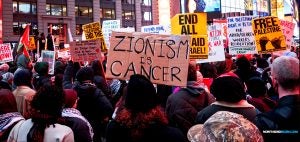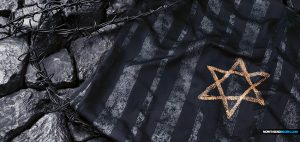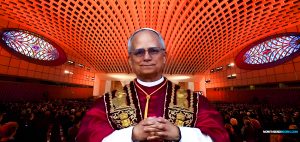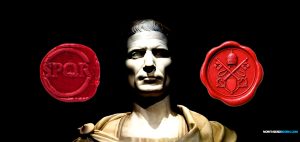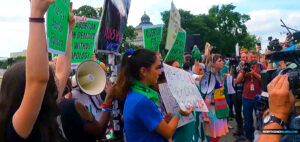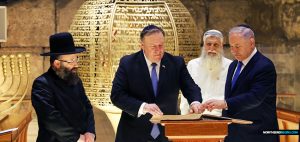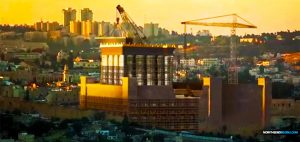Al-Qaeda
Obama’s Greatest Achievement In 2012 Was Creating An Islamist Egypt
Without Obama giving the Muslim Brotherhood financial support and the backing of the United States, the phony Arab Spring never would have taken hold.

US President Barack Hussein Obama’s greatest achievement in 2012 was creating an Islamist Egypt ruled by the Muslim Brotherhood. Make no mistake about it, without Obama giving the Muslim Brotherhood financial support and the backing of the United States, the phony Arab Spring never would have taken hold. Of course, all this was done to turn the Middle East’s largest Muslim country into a Sharia-ruled regime that just happens to sit on the southern border of Israel.
What a coincidence.
From Yahoo News: CAIRO (AP) — Egypt’s Islamist-backed constitution headed toward likely approval in a final round of voting on Saturday, but the deep divisions it has opened up threaten to fuel continued turmoil.

Instead, Morsi disillusioned many non-Islamists who had once backed him and has become more reliant on his core support in theMuslim Brotherhood and other Islamists. Hard-liners in his camp are determined to implement provisions for stricter rule by Islamic law in the charter, which is likely to futher fuel divisions.
His liberal and secular opposition, in turn, faces the task of trying to organize the significant portion of the population angered by what they see as attempts by Morsi and the Brotherhood to gain a lock on political power. The main opposition group, the National Salvation Front, said it would now start rallying for elections for the next lawmaking, lower house of parliament, expected early next year.
“We feel more empowered because of the referendum. We proved that at least we are half of society (that) doesn’t approve of all this. We will build on it,” the Front’s spokesman, Khaled Daoud, said. Still, he said, there was “no appetite” at the moment for further street protests.
Saturday’s voting in 17 of Egypt’s 27 provinces was the second and final round of the referendum. Though the constitution is widely expected to pass, the key questions will be over turnout and the margin of victory. Preliminary results from the first round a week ago showed only 32 percent turnout and a relatively low edge of 56 percent for the “yes” vote. Preliminary results from the second round are expected to emerge by early Sunday.
The new constitution would come into effect once official results are announced, expected in several days
In a sign of disarray in Morsi’s administration, his vice president and — possibly — the central bank governor resigned during Saturday’s voting. Vice President Mahmoud Mekki’s resignation had been expected since his post is eliminated under the new constitution. But its hasty submission even before the charter has been sealed and his own resignation statement suggested it was linked to Morsi’s policies.
“I have realized a while ago that the nature of politics don’t suit my professional background as a judge,” his resignation letter, read on state TV, said. Mekki said he had first submitted his resignation last month but events forced him to stay on.
The status of Central Bank Governor Farouq el-Oqdah was murkier. State TV first reported his resignation, then soon after reported the Cabinet denied he has stepped down in a possible sing of confusion. El-Oqdah, in his post since 2003, has reportedly been seeking to step down but in recent weeks the administration was trying to convince him to stay on. The government is eager to show some stability in the economy as the Egyptian pound has been sliding and a much-needed $4.8 billion loan from the IMF has been postponed.
“I don’t trust the Brotherhood anymore and I don’t trust the opposition either. We are forgotten, the most miserable and the first to suffer,” said Azouz Ayesh, sitting with his neighbors as their cattle grazed in a nearby field in the Fayoum countryside.
Over the past month, seven of Morsi’s 17 top advisers and the one Christian among his top four aides resigned. Like Mekki, they said they had never been consulted in advance on any of the president’s moves, including his Nov. 22 decrees, since rescinded, that granted himself near absolute powers.
Those decrees sparked large street protests by hundreds of thousands around the country, bringing counter-rallies by Islamists. The turmoil was further fueled with a Constituent Assembly almost entirely made up of Islamists finalized the constitution draft in the dead of night amid a boycott by liberals and Christians. Rallies turned violent. Brotherhood offices were attacked, and Islamists attacked an opposition sit-in outside the presidential palace in Cairo leading to clashes that left 10 dead.
The turmoil opened up a vein of bitterness that the polarizing constitution will do little to close. Morsi opponents accused him of seeking to create a new Mubarak-style autocracy. The Brotherhood accused his rivals of being former Mubarak officials trying to topple an elected president and return to power. Islamists branded opponents “infidels” and vowed they will never accept anything but “God’s law” in Egypt.
Both rounds of voting saw claims by the opposition and rights groups of voting violations. On Saturday they said violations ranged from polling stations opening late to Islamists seeking to influence voters to say “yes.” The official MENA news agency said at least two judges have been removed for coercing voters to cast “yes” ballots.
The opposition’s talk of now taking the contest to the parliament elections represented a shift in the conflict — an implicit gamble that the opposition can try to compete under rules that the Islamists have set. The Brotherhood’s electoral machine has been one of its strongest tools since Mubarak’s fall, while liberal and secular parties have been divided and failed to create a grassroots network.
In the first post-Mubarak parliament elections last winter, the Brotherhood and ultraconservative Salafis won more than 70 percent of seats in the lower chamber, which was later dissolved by a court order. The opposition is now betting it can do better with the anger over Morsi’s performance so far.
The schism in a country that has for decades seen its institutions function behind a facade of stability was on display in Saturday’s lines of voters. In the village of Ikhsas in the Giza countryside south of Cairo, an elderly man who voted “no” screamed in the polling station that the charter is “a Brotherhood constitution.”
“We want a constitution in the interest of Egypt. We want a constitution that serves everyone, not just the Brotherhood. They can’t keep fooling the people,” Ali Hassan, a 68-year-old wearing traditional robes, said.
But others were drawn by the hope that a constitution would finally bring some stability after nearly two years of tumultuous transitional politics. There appeared to be a broad economic split, with many of the middle and upper classes rejecting the charter and the poor voting “yes” — though the division was not always clear-cut.
In Ikhsas, Hassan Kamel, a 49-year-old day worker, said “We the poor will pay the price” of a no vote. He dismissed the opposition leadership as elite and out of touch. “Show me an office for any of those parties that say no here in Ikhsas or south of Cairo. They are not connecting with people.”
In the industrial working class district of Shubra El-Kheima just north of Cairo, women argued while waiting in line over the draft charter. Samira Saad, a 55 year old housewife, said she wanted her five boys to find jobs. “We want to get on with things and we want things to be better,” she said.
Nahed Nessim, a Christian, questioned the integrity of the process. “There is a lot of corruption. My vote won’t count.” She was taken to task by Muslim women wearing the niqab, which blankets the entire body and leaves only the eyes visible and is worn by ultraconservative women.
“We have a president who fears God and memorizes His words. Why are we not giving him a chance until he stands on his feet?” said one of the women, Faiza Mehana, 48.
The promise of stability even drew one Christian woman in Fayoum, southwest of Cairo, to vote “yes” — a break with most Christians nationwide who oppose the draft. Hanaa Zaki said she wanted an end to Egypt’s deepening economic woes.
“I have a son who didn’t get paid for the past six months. We have been in this crisis for so long and we are fed up,” said Zaki, waiting in line along with bearded Muslim men and Muslim women wearing headscarves in Fayoum, a province that is home to both a large Christian community and a strong Islamist movement.
The scene In Giza’s upscale Mohandiseen neighborhood was starkly different.
A group of 12 women speaking to each other in a mix of French, Arabic and English said they were all voting “no.”
“It’s not about Christian versus Muslim, it is Muslim Brotherhood versus everyone else,” said one of them, Shahira Sadeq, a Christian physician.
Kamla el-Tantawi, 65, said she was voted “against what I’m seeing” — and she gestured at a woman nearby wearing the niqab.
“I lose sleep thinking about my grandchildren and their future. They never saw the beautiful Egypt we did,” she said, harkening back to a time decades ago when few women even wore headscarves covering their hair, much less the black niqab. Many voters were under no illusions the turmoil would end. source – Yahoo News

Al-Qaeda
Obama Administration ‘Loses’ Half Billion In Military Weaponry To al-Qaeda In Yemen
Pentagon officials cannot track the whereabouts of $500 million worth of military equipment the U.S. donated to Yemen since 2007 – raising alarms that the hardware may have ended up with al-Qaeda or Iranian-backed rebels.

Pentagon officials cannot track the whereabouts of $500 million worth of military equipment the U.S. donated to Yemen since 2007 – raising alarms that the hardware may have ended up with al-Qaeda or Iranian-backed rebels.
Ever wonder how al-Qaeda and ISIS always have such advanced weaponry and military capabilities? Wonder no more! Obama gives it to them, that’s how they do it. Did you think it was a trick question?
U.S. officials said Tuesday that increasing instability in Yemen has made it impossible to keep tabs on donated equipment that includes small arms, ammunition, patrol boats and night-vision goggles, according to The Washington Post.

U.S. firearms supplied to the Interior Ministry in Yemen, which has received $500 million in aid from the United States since 2007 under an array of Defense Department and State Department programs. (Government Accountability Office)
“We have to assume it’s completely compromised and gone,” a legislative aide on Capitol Hill, speaking on the condition of anonymity, told The Post.
In January, Yemen’s government was overtaken by Iranian-backed Shiite Houthi rebels. The rebels are increasingly taking over military bases.
Since then, the U.S. closed its embassy in Yemen and the Defense Department has stopped delivering equipment to the country, including a shipment of $125 million worth of military products scheduled to be delivered earlier this year.
This is the equipment no one can find, The Post reports:
- 1,250,000 rounds of ammunition
- 200 Glock 9 mm pistols
- 200 M-4 rifles
- 4 Huey II helicopters
- 2 Cessna 208 transport and surveillance aircraft
- 2 coastal patrol boats
- 1 CN-235 transport and surveillance aircraft
- 4 hand-launched Raven drones
- 160 Humvees
Al-Qaeda
Al-Qaeda Affiliate Threatens To Kill American Hostage Luke Somers
Luke Somers, a 33-year-old photojournalist, was abducted in 2013 in Sanaa, the capital of Yemen, according to media reports. In a YouTube video published Wednesday, he says he is certain his “life is in danger.”

An al-Qaeda affiliate has threatened to kill an American hostage in three days if the U.S. government does not respond to the group’s demands, according to terrorist monitoring group Site Intelligence Group.
Luke Somers, a 33-year-old photojournalist, was abducted in 2013 in Sanaa, the capital of Yemen, according to media reports. In a YouTube video published Wednesday, he says he is certain his “life is in danger.”

The video features an al-Qaeda official and a brief message from Somers – dressed in a purple shirt and with a shaved head – at the end. He notes that he was born in England but has American citizenship and lived in America for most of his life.
The al-Qaeda operative who speaks throughout much of the video and threatens that Somers will meet his “inevitable fate” if the group’s demands are not met is Nasser bin Ali al-Ansi of the Arabian Peninsula affiliate, Site Intelligence Group said. The video does not list what those demands are, but al-Ansi says Washington is “aware” of them.
“It’s now been well over a year since I’ve been kidnapped in Sanaa,” Somers said in the footage. “Basically, I’m looking for any help that can get me out of this situation. I’m certain that my life is in danger. So as I sit here now, I ask, if anything can be done, please let it be done. Thank you very much.”
Somers was kidnapped in September 2013 from a street in Sanaa, where he had worked as a photojournalist for the Yemen Times, the Associated Press said.
Read the rest of this story on USA Today…
Al-Qaeda
Islamic Terrorists Foster Jihad With Over 90 Tweets Per Minute On Twitter
Abdulmunim Al-Mushawah revealed that about 129,600 tweets were posted by accounts affiliated to terror groups in October 2014. As a result, at least 500 accounts believed to have been run by terrorists were deactivated.

Islamic terror groups post at least 90 tweets every minute, a new report has found
The data was revealed in a survey conducted by the Saudi-based Sakina, an independent, non-governmental organisation created to engage in dialogue online as a way to combat internet radicalization.

Results showed that terror groups such as the Syrian Islamic Liberation Front, Al-Nusra Front and Islamic State (ISIS) use social media to recruit new members and to spread their propaganda.
Abdulmunim Al-Mushawah, head of the organisation, revealed that about 129,600 tweets were posted by accounts affiliated to terror groups in October 2014. As a result, at least 500 accounts believed to have been run by terrorists were deactivated.
Al-Mushawah urged for a censorship committee to be put in place in order to monitor tweets that could be written to promote insurgents’ propaganda. “The nature of the extremist can be understood by analysing his posts, identifying his social circle and understanding his internal motives and history,” he was quoted by the Saudi Gazzette as saying.
“After understanding and recognising the type of extremist the person is, we can then follow the appropriate method of dialogue knowing that it is a lengthy and complicated process at times.
“The responsibility of protecting the general public from terrorist activities does not only lie with the official directorates. It is also the responsibility of the media, mosques and educational institutes,” he continued.
“Public awareness and guidance are the campaign’s top priorities because it is important to teach people how to face one problem without creating another.”
-
George Soros9 years ago
Proof Of George Soros Nazi Past Finally Comes To Light With Discovery Of Forgotten Interview
-
Election 20169 years ago
DEAD POOL DIVA: Huma Abedin Kept Those Hillary Emails That The FBI Found In A Folder Marked ‘Life Insurance’
-
Election 20169 years ago
Crooked Hillary Campaign Used A Green Screen At Today’s Low Turnout Rally In Coconut Creek FL
-
George Soros9 years ago
SORE LOSER: George Soros Declares War On America As Violent MoveOn.Org Protests Fill The Streets
-
Donald Trump9 years ago
Donald Trump Will Be 70 Years, 7 Months And 7 Days Old On First Full Day In Office As President
-
Headline News9 years ago
If Hillary Is Not Guilty, Then Why Are Her Supporters Asking Obama To Pardon Her? Hmm…
-
Election 20169 years ago
WikiLeaks Shows George Soros Controlling Vote With 16 States Using SmartMatic Voting Machines
-
End Times9 years ago
False Teacher Beth Moore Endorses The Late Term Partial-Birth Abortion Candidate Crooked Hillary













